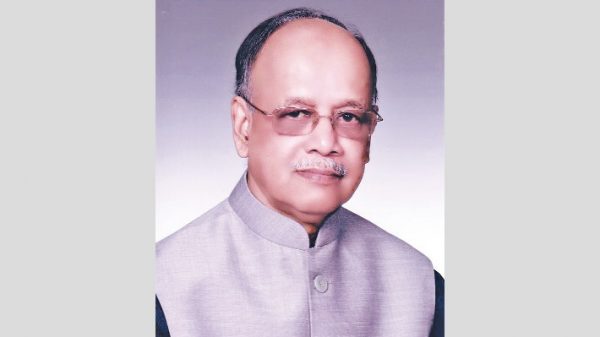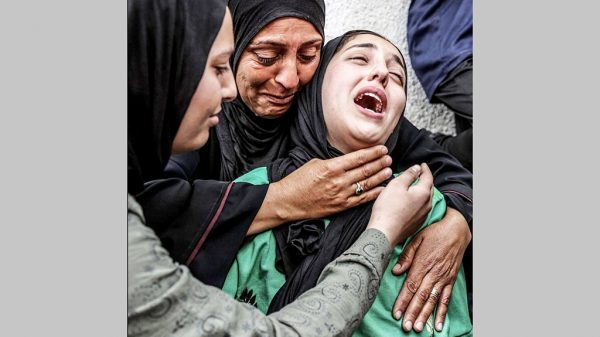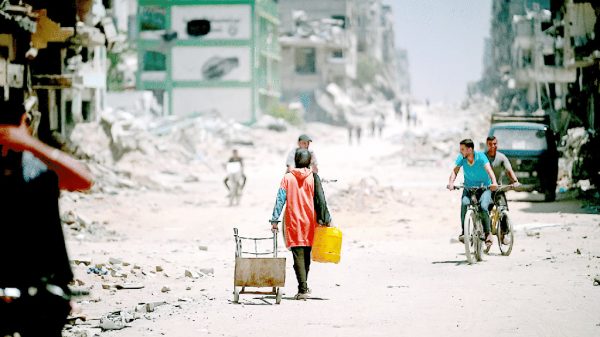15th August Massacre and the Enemy Within

Abdul Mannan :
15th August is a day of mourning in Bangladesh. On this day in the early morning of 15th August, 1975 the Father of the Nation Bangabandhu Sheikh Mujibur Rahman with his entire family members excepting his two daughters, the current Prime Minister Sheikh Hasina and her younger sister Sheikh Rehana, were brutally murdered by a group of army personnel. At that time, both the sisters were in Germany where Sheikh Hasina’s husband Dr. Wazed Miah was on a research fellowship. Both sisters left just weeks before the mayhem. That tragedy happened about forty six years back. Forty-six years is a long time and during this period substantial amount of evidences have surfaced surrounding the killings of 15th August. Virtually all the evidences point fingers towards those who were very close to Bangabandhu and were part of the conspiracy or close to the conspirators who conspired to assassinate him.
People who masterminded the killings on 15th August were the people who did not want the independence of Bangladesh and political assassinations are usually difficult to execute without the assistance of insiders. There are ample proofs since the assassination of Julius Cesar in 44 BC to Bangabandhu in 1975 where insiders played vital roles in assassinating political leaders in different countries over the centuries.
Young Mujib who was a political worker during the pre-partition years in Calcutta (Kolkata) worked for the creation of Pakistan under the leadership of Bengal Muslim League. Once establishment of Pakistan became a reality and Bengal was divided along with Punjab young Mujib moved to then East Pakistan from Calcutta. But within a very short time it became evident to him that a strange country like Pakistan will not serve the purpose of the people of East Bengal. Their masters have simply changed. Instead of the British ruling them, it will be the West Pakistan’s civil-military elites and big capitalists who will replace them and the subjugation of the people of eastern wing will continue as before. This was made clearer when Pakistan’s first Governor General Muhammad Ali Jinnah during his maiden visit to Dhaka in 1948 declared in clear terms that Urdu, the language of less than six per cent of Pakistan’s population will become the state language of Pakistan; not Bangla, the language of 56 per cent of population. That is when Mujib thought that to change the destiny of the people of East Bengal they must have a country of their own.
From 1948 to 1970 the political life of Mujib was dedicated to realize his dream of an independent country which he himself named Bangladesh. During twenty three years of Pakistan’s rule Sheikh Mujib spent thirteen years in prison and faced death sentence on two different occasions on charges of treason.
By all definitions Bangabandhu’s Six-point programme announced in the 1966 was the seed of an independent Bangladesh which the Pakistani rulers could realize. Unfortunately some Awami League leaders did not support the Six-point announced by Mujib, the then General Secretary of Awami League. The then President of Awami League Maulana Abdur Rashid Tarkabagish even resigned from the party differing with Mujib and many within the Awami League spread a lie that Mujib’s Six-point program was drafted by the American CIA and ironically that same CIA has now been found getting involved in the conspiracy to kill Bangabandhu.
Perhaps the first conspiracy against Bangladesh and political life of Bangabandhu began in the middle of our Liberation War in 1971 when a close confidant of Mujib and the Foreign Minister of the Government in Exile Khondaker Mostaq Ahmad in the month of September sent his emissary, a parliament member elected from Comilla (Cumilla) Zahirul Quyium (AL) to the US Consul General stationed in Kolkata, George Griffin, with a message that if they can arrange for the release of Bangabandhu from the Pakistan prison he will do whatever is necessary to stop the Liberation War. However the Consul was not impressed as Mostaq was acting on his own without the knowledge of the Prime Minister Tajuddin Ahmed and his cabinet. The episode has been narrated by the then US President Richard Nixon’s Secretary of State Henry Kissinger in his book ‘White House Years’. Mostaq’s moves were known by his Secretary Mahbubul Alam Chashi, Taher Uddin Thakur and few other national and provincial assembly members elect.
Comrade Abdul Haque, the General Secretary of Bangladesh Communist Party (M-L), was bent on uprooting the government of Bangabandhu from the very beginning of the independence of Bangladesh. Both ultra-right and ultra-left political parties of Bangladesh never supported an independent Bangladesh. Maulana Bhashani, the Chief of pro-Peking (Beijing) NAP and the founder President of Awami League, was compelled to take refuge in India under compelling circumstances. After independence he played a strong role in preparing the ground to destabilize the country and mobilizing public opinion against Mujib right from the very beginning of the Bangabandhu’s return from Pakistan prison on 10th January 1972. He was joined by a breakaway faction of Awami League who formed the JSD with the sole purpose of disturbing the country’s stability and overthrowing Bangabandhu’s government. They even had an armed wing called ‘Gonobahini’.
On 16th December of 1974 Comrade Abdul Haque wrote a letter to Pakistan’s President Zulfiqar Ali Bhutto addressing him as ‘My President’ to provide him with arms, money and wireless sets for use against the ‘puppet’ government of Mujib. (Zulfi Bhutto of Pakistan, by Stanley Wolpert). Bhutto wrote in the margin of the letter ‘this man can be trusted’ and deputed one Mahmud Ali to help Comrade Abdul Haque.
However from available evidence, research and released CIA documents the lynchpin of the tragedy of 15th August seems to be the Deputy Army Chief and founder of BNP General Zia. The post of Dy. Army Chief was created by Bangabandhu for General Zia as Zia was very upset from the very beginning for not promoting him to the post of Army Chief instead of General Shafiullah. Zia was slightly senior to General Shafiullah but it is not mandatory and neither a custom that the senior most officer will become the army chief. It is the prerogative of the Head of the Government to decide who will be the army chief. Moreover, Zia’s commitment to the cause of Bangladesh was always in doubt as till 26th March midnight he was unconditionally loyal to Pakistan. When Pakistan Army launched ‘Operation Searchlight’ on that night Zia who was then posted in 8th Bengal Regiment stationed outside the Chittagong cantonment area in Sholashahar was busy helping unload the arms and ammunitions from Pakistan’s merchant ship MV Swat. He revolted against the Pakistan army only when he saw his life will be in danger if he stayed with the Pakistan army. Zia joined the Liberation War just to save his life and not necessarily to serve the cause of our Liberation War. He was a ‘Mukti Bahini’ by compulsion, not my choice.
Besides Zia, the other key players who conspired to overthrow Bangabandhu’s government and assassinate him were Khondaker Mostaq’s close relative Colonel (dismissed) Khondaker Abdur Rashid, Major (dismissed) Shariful Haque Dalim and Colonel (dismissed) Syed Faruque Rahman. All of them left Pakistan, travelled via Dubai and contacted the government in exile in the month of October and November. It is believed that they were sent by Pakistan’s military intelligence ISI to sabotage the Liberation War from within. However the Prime Minister Tajuddin Ahmed of the exiled government instead of sending them to the front asked them to work in his office.
Once Bangladesh was liberated from the Pakistan army all of them regularly met Zia in the cantonment and discussed with him about their plan to overthrow Bangabandhu.
Immediately after the killing of Bangabandhu and his family, it seemed that there was a rat race to support the killings. When all the dead bodies of those killed were lying in pool of blood all the Service Chiefs went to the radio and announced their allegiance to the Khondaker Mostaq Ahmad, Bangabandhu’s long-time political colleague, who was designated to replace Bangabandhu later in the day after taking oath. In the evening Mostaq was sworn in as the new President of Bangladesh. Later he formed his 23 member new cabinet and ironically twenty one of Bangabandhu’s cabinet members found berth in Mostaq’s cabinet, which included people like General Osmani, the war time Army Chief and Dr. Muzaffar Ahmed Chowdhury (former Vice-chancellor of Dhaka University and the first Chairman of the University Grants Commission).
Both Col (dismissed) Abdur Rashid and Col (dismissed) Syed Faruque Rahman confessed to Anthony Mascarenhas in a TV interview in London later about Zia’s involvement in the conspiracy. Later Zia rewarded all the killers by giving them diplomatic assignments in different embassies of Bangladesh in other countries.
Zia not only kept contact with the army conspirators, he also began to make contacts with government’s civil bureaucrats. In 1974, he met Dr. Nurul Islam, the then Vice Chairman of the Bangladesh Planning Commission in his office and complained to him that there has been large scale smuggling of essentials, including rice to India from Bangladesh. (Nurul Islam, Making of a Nation, Bangladesh – An Economist’s Tale, UPL, page 225). An experienced economist as Dr. Nurul Islam he proved that considering the war damaged infrastructure and availability of food grains in the country what Zia was claiming may not be true. Zia left Dr. Islam’s office totally dissatisfied. Towards the end of 1974 Dr. Islam was preparing to go on a long leave to take up a research fellowship abroad. Zia rushed to Dr. Islam and urged him not to leave. Dr. Islam writes, ‘He (Zia) was confident that in the not too distant future, the situation would improve and the prevailing drift and uncertainty would disappear.’ (Nurul Islam, Ibid, Page 168). Dr Islam writes, ‘I was surprised by the tenor of his talk and the confidence with which he spoke about the restoration of political and economic stability…particularly by his confidence that into “not too distant future” (pp. 168-169).
The readers must have heard the name of investigative American journalist Lawrence Lifschultz (Bangladesh – A legacy of Blood). Lifschultz, going through the publicly released documents of American National Security Achieves writes, ‘just before seven to ten days of the killing of Bangabandhu and his family members there was a private dinner in Dhaka where only six people attended. They were the host and his wife, CIA station Chief at US embassy in Dhaka Phillip Cherry and his wife and General Zia and his wife. Zia was known to Phillip Cherry from before. Before and after the dinner Zia and Cherry had long discussions in private in the lawn of the host. Lawrence Lifschultz writes, ‘The evidence increasingly points to the fact that Zia was one of the opinion principal architects of the coup and played a much more significant role than Khondaker Mostaq Ahmad.’ (Lifschultz, A long road in search of the truth-August 15, 1975, Dhaka Tribune, 14thAugust 2018).
If one is to analyse the happenings before and after the killings of August 15th 1975, it will be evident those who plotted the killing of Bangabandhu and his family members they were all insiders and they were profusely helped by US intelligence agency CIA and Pakistan’s infamous army intelligence ISI. However Bangabandhu was warned on a number of occasions by the Indian intelligence agency RAW about the conspiracy in details but Bangabandhu never took it seriously and never believed that his own people would conspire against him.
May the memories of those killed on 15th August live forever!
The writer is an analyst and a commentator.




























Leave a Reply